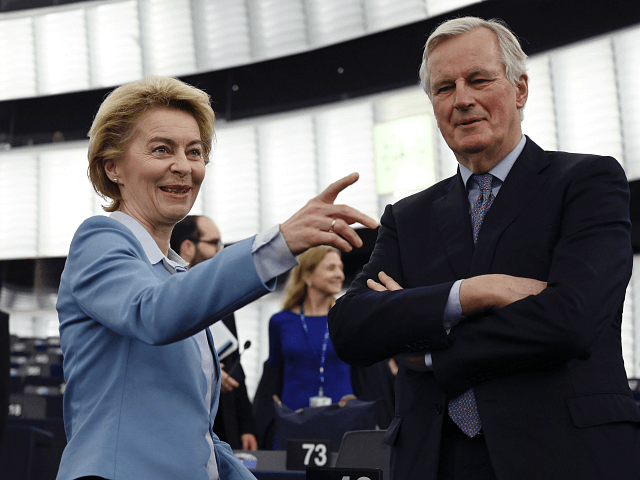MEPs have voted overwhelmingly in favour of making the United Kingdom obey by European Union regulations when the transition period ends in December 2020 as the cost of Brussels agreeing on a free trade agreement with London.
The European Parliament adopted the resolution 543 to 39 (69 abstentions) that backed the European Commission’s negotiation mandate on Wednesday. The lawmakers said that in the new free trade agreement, “future competition with the EU must be kept open and fair through a ‘level playing field’, which means guarantees for equal rules on, among other things, social, environmental, tax, state aid, consumer protection and climate matters”.
“To maintain quota-free, tariff-free trade relations, the British government should pledge to update its rules on, for instance, competition, labour standards and environmental protection, in order to ensure ‘dynamic alignment’ of EU-UK laws,” the Members of the European Parliament said.
The MEPs cited concern over the size of the UK economy and its proximity to Europe as a reason to keep Brexit Britain hobbled by regulations that British people rejected at the polls nearly four years ago in the referendum.
The resolution also demands an agreement in fisheries by June 2020 — a contentious area for British fishermen who want to take back control of their own waters, and France, Denmark, and the Netherlands which want to continue to exploit them.
While the European Parliament is the least powerful branch of the European Union, it does have a vote on the final UK-EU trade deal and today’s declaration gives it the ability to be the “bad cop” in negotiations, according to a senior MEP from the Parliament’s UK Co-ordination Group who spoke to the BBC.
“Michel Barnier can say to London that he can’t do certain things because the Parliament won’t accept them,” they said.
The resolution comes after reports that European countries want to be able to punish the UK for perceived breaches of a future trading arrangement, including restrictions on hauliers and stopover flights from the UK.
Negotiations have not yet begun, but Prime Minister Boris Johnson said that he will not agree to the UK maintaining EU regulations in exchange for agreeing on a deal with Brussels.
Two senior Cabinet ministers have already said that Britain does not need a trade deal with Brussels, and Mr Johnson’s Brexit Act has ruled out extending the transition period, meaning that if there is no deal, the two parties will simply trade on World Trade Organization terms.
Foreign secretary Dominic Raab has begun courting other nations around the world for bilateral trade agreements, meeting with representatives from Australia, Japan, Singapour, and Malaysia last week.

COMMENTS
Please let us know if you're having issues with commenting.